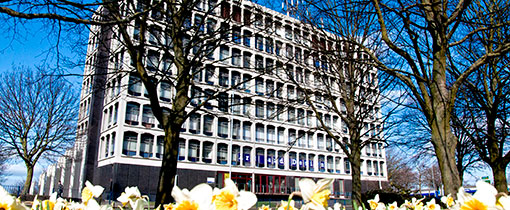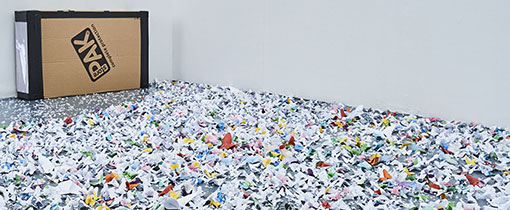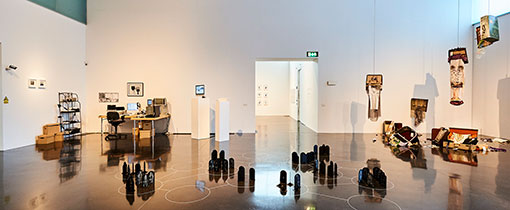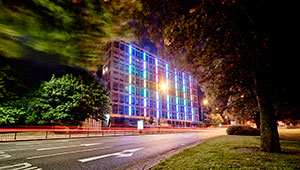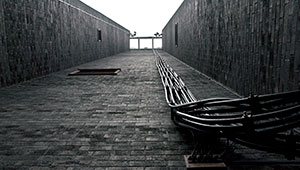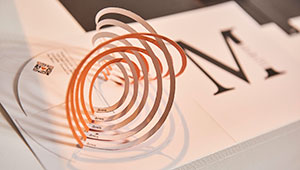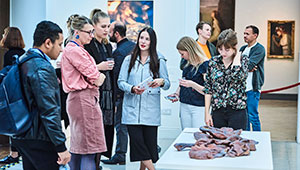MA Digital and Visual Communications
Our students have worked hard over the past two years to create work that is on display during the MA Show.
The Covid Pandemic resulted in students having limited access to on-site resources and restricted provision of face to face teaching. Despite these extraordinary pressures our students have worked extremely hard to produce an impressive body of work. During this time staff rose to the challenge of delivering engaging course content and support that could be safely provided remotely using innovative methods that took advantage of digital technology.
MA Digital and Visual Communications offers an exciting combination of theory and practice. The course attracts students from a variety of specialist backgrounds promoting a stimulating environment where students are encouraged to research, experiment and push the boundaries of their practice.
Students are encouraged to develop a distinctive independent creative approach that helps to ensure their work stands out in the contemporary media marketplace. Our current cohort have created a diverse body of engaging and thought-provoking work. They have gained the intellectual and creative confidence to effectively engage with the competitive creative industries and through the investigation of a negotiated major project they have had the opportunity to develop skills and knowledge, culminating in this showcase exhibition at the Wolverhampton Art Gallery.
Thanks to our students for their drive and determination during these testing times, we wish them every success in their future careers.
Clive Moore Course Leader, MA Digital and Visual Communications
Class of 2019-20
The following MA Digital and Visual Communications students graduated during the 2019-20 academic year.
- Wigo Andresen
- Jodie Bates
- Elsrida Gashi
- Jacqueline Reichmann
- Katharina Baronesse Von Stempel
- James Bytheway
- Emily Cooksey
- Evija Grube
- Nico Hintelmann
- Winston Lemmer
- Rebecca Luyken
- Pia Sorge
- Laureen Thews
- Fabiana Thielmann
- Friederike Thiesen
- Deborah Wills
Covid 19 ‘lockdown’ restrictions resulted in our last MA Degree Show being cancelled but we are proud to announce that some of our 2019-20 alumni are displaying their work during this year’s exhibition alongside our current students.

Wigo Andresen

Elsrida Gashi

Katharina Baronesse Von Stempel

Emily Cooksey

Nico Hintelmann

Rebecca Luyken

Laureen Thews

Friederike Thiesen

Jodie Bates

Jacqueline Reichmann

James Bytheway

Evija Grube

Winston Lemmer

Pia Sorge

Fabiana Thielmann

Deborah Wills
Wolverhampton School of Art Graduate Showcase 2021
We are delighted to announce our end of year graduate showcase highlighting the work of our final year students in Art, Design and Screen based subjects.
Over the last few weeks we have had a film crew on site in the School of Art recording student experiences and their work. The last year, has undoubtedly been a huge challenge to students and staff in the School of Art. We have found ourselves working at home in make-shift spaces and often with limited materials and kit. Our staff and students have been hugely inventive in finding opportunities and outlets to keep learning live - and this, in itself, is a testament to our creativity and resilience as a sector.
British Art Show 9
22 January - 10 April 2022
We are delighted to announce that the Wolverhampton School of Art has been selected as one of the venues for the prestigious British Art Show 9! In what is a major boost and sign of recognition for arts and culture in Wolverhampton, we are proud to be hosting this prestigious touring exhibition in January 2022.
FEINART Lecture Series
The FEINART LECTURE SERIES will discuss the role, impact, and theoretical implications of socially engaged art. This series of public talks is organized by the Innovative Training Network FEINART (The Future of European Independent Art Spaces in a Period of Socially Engaged Art) jointly led by the Universities of Wolverhampton (coordinator), Zeppelin University (direction of the training programme) University Iceland, and University of Edinburgh.

This project has received funding from the European Union’s Horizon 2020 research and innovation programme under the Marie Skłodowska-Curie grant agreement No 860306


/prod01/wlvacuk/media/departments/media-and-communications/images-18-19/220325-Engineers_teach_thumbail.jpg)
/prod01/wlvacuk/media/departments/media-and-communications/images-18-19/BBR_logo_large.jpg)
/prod01/wlvacuk/media/departments/media-and-communications/images-18-19/Wolves-Story-Thumb.jpg)
/prod01/wlvacuk/media/departments/media-and-communications/images-18-19/220505-BAS9-School-Showcase-Resized.jpg)
/prod01/wlvacuk/media/departments/business-solutions/images/banners/business-we-back-you-500x250.jpg)
/prod01/wlvacuk/media/departments/faculty-of-arts/images/ma-show/2021/banners/DVC_video_banner.jpg)


















